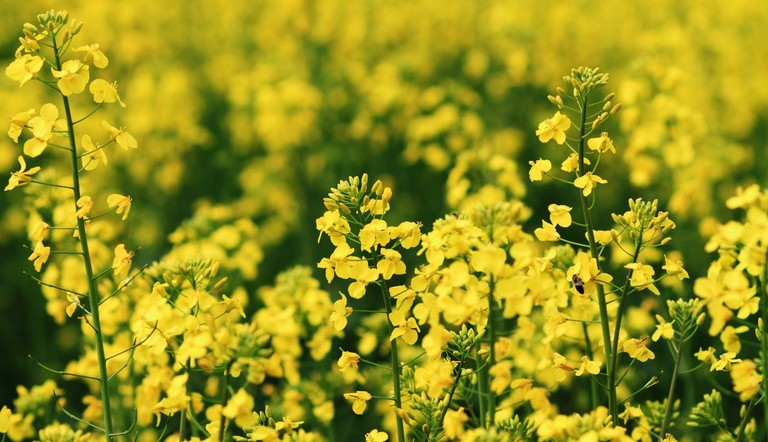
Safeguarding beneficials to control seed weevils in OSR

As winter oilseed rape crops begin to flower, growers and agronomists should be on the lookout for cabbage seed weevil activity especially as these insects have the potential to cause significant yield losses, not only as a result of the direct damage caused by laying their eggs in developing pods, but also by subsequent populations of brassica pod midges which use the holes left by the hatched weevil larvae to access rapeseed pods and lay their own eggs.
Growers in known seed weevil hotspots such as Yorkshire and Lincolnshire should be particularly vigilant and are advised to use integrated pest management protocols to safeguard the natural predatory effect of beneficial organisms. One way of achieving this is, when insect populations have reached threshold, to use a pesticide which has a lower residual impact on advantageous predators.
If a pyrethroid-based insecticide is deemed the most appropriate mode of action to protect against insect damage, care should be taken to select one which has a reduced impact on populations of useful organisms.
One such product is MAVRIK (240 g/litre tau-fluvalinate) which not only provides fast-acting contact control of cabbage seed weevils, but has also been proven to have a lower residual impact on beneficial insects compared to other pyrethroids. This reduced toxicity enables the natural predators of seed weevils to recover more quickly after crops have been sprayed, therefore ensuring there’s a strong population of predators ready and able to overcome any subsequent influxes of seed weevils.
MAVRIK (240 g/litre tau-fluvalinate) is a highly active and novel pyrethroid which has less impact on beneficial organisms such as honey bees compared to other pyrethroid insecticides and which provides effective, fast-acting contact control of aphids, pollen beetle and cabbage seed weevil.
